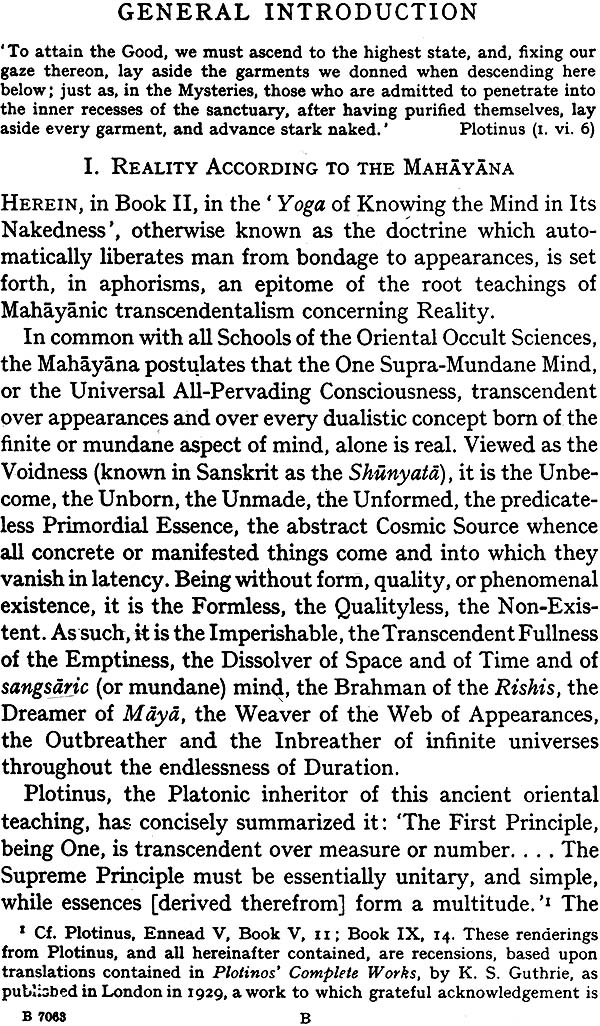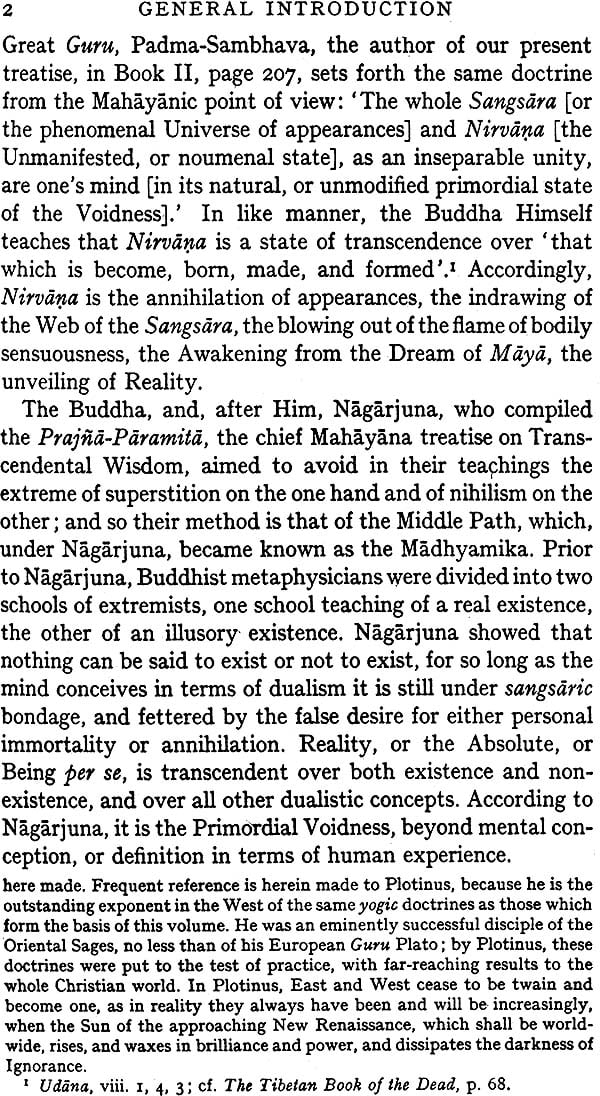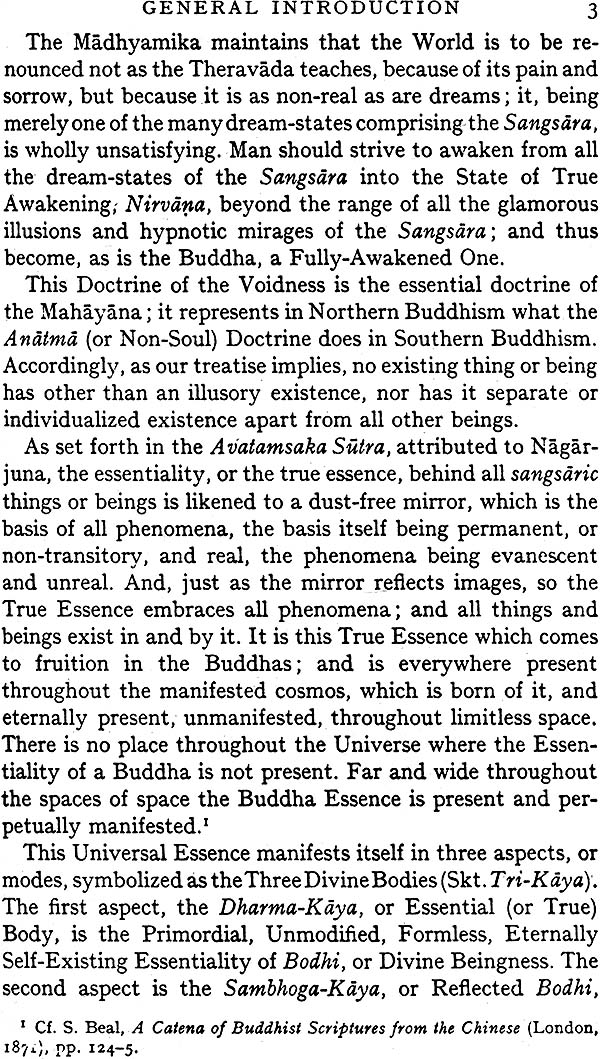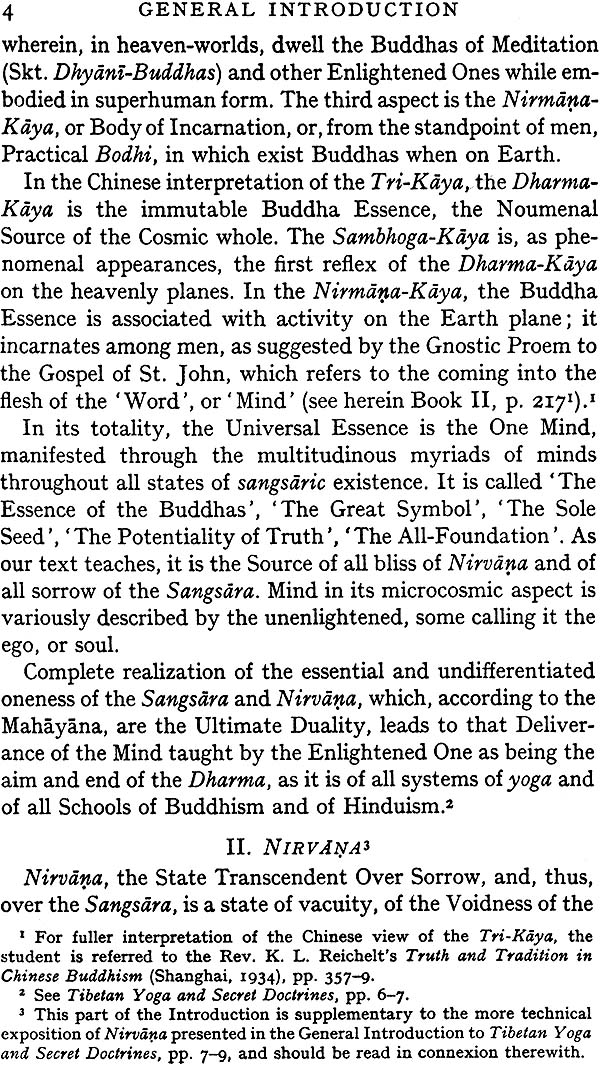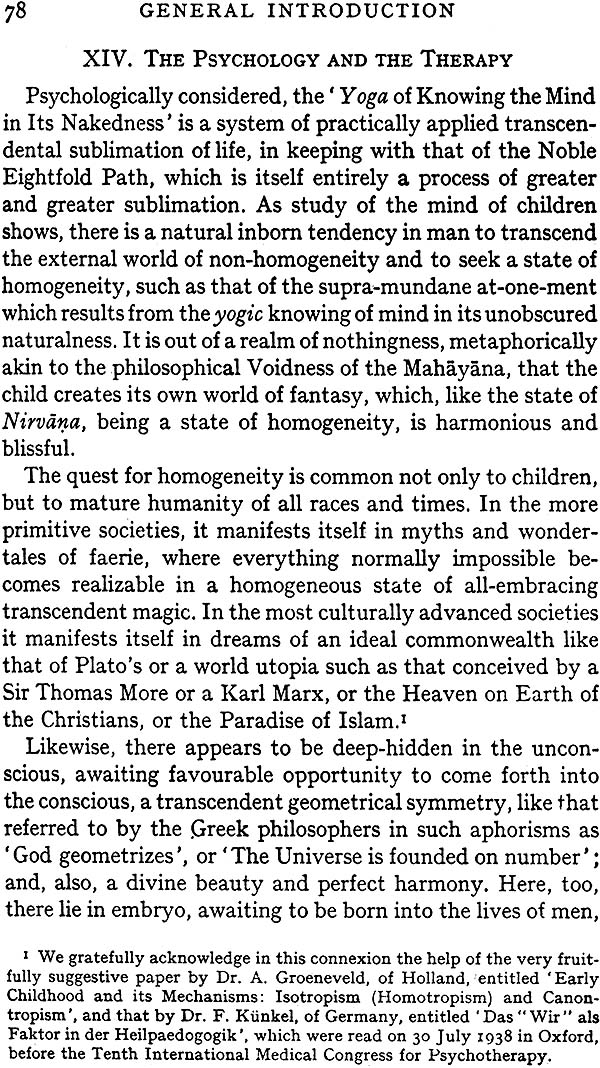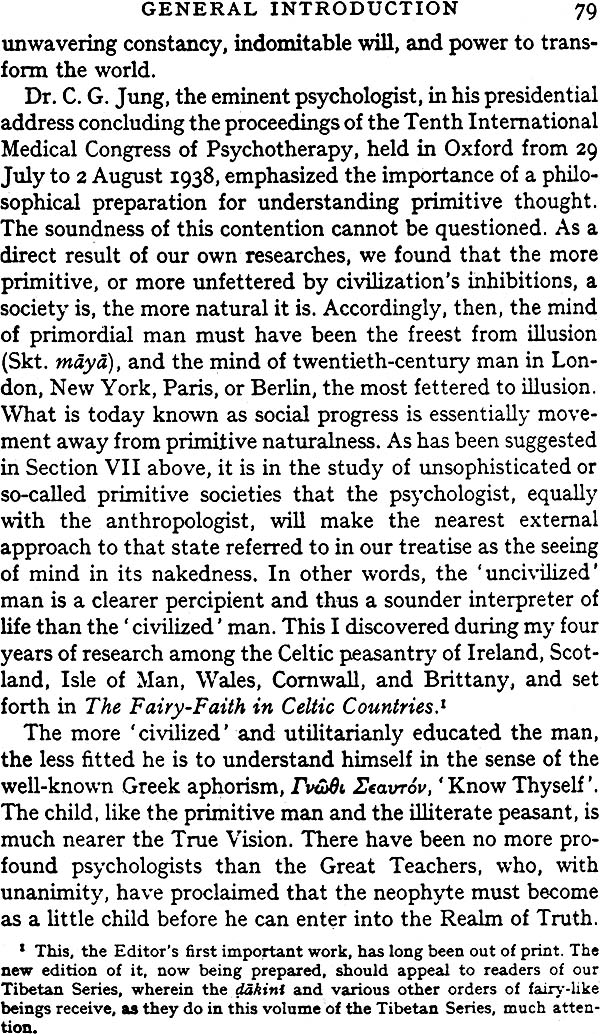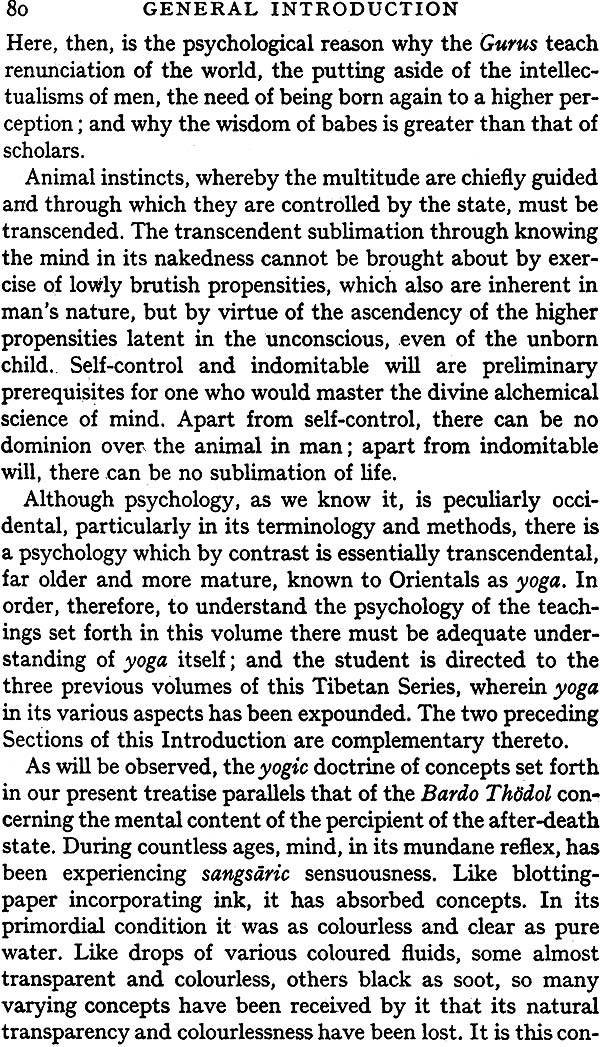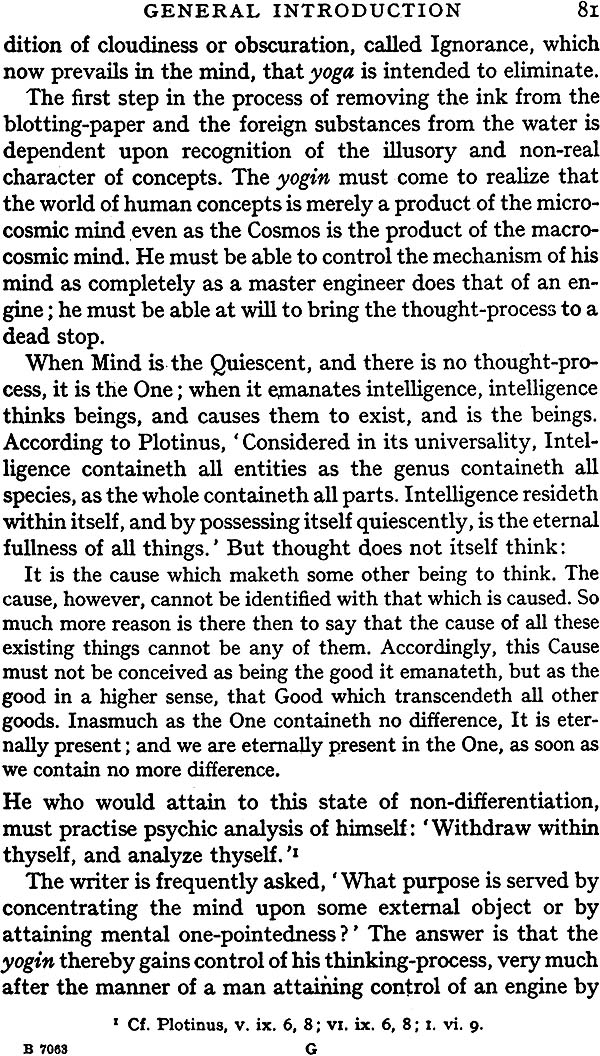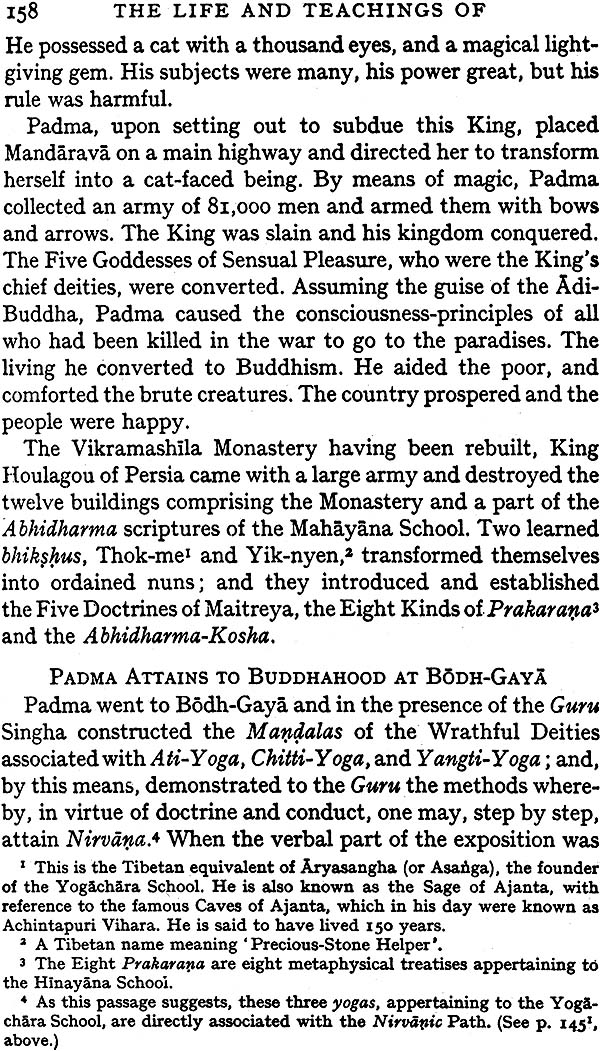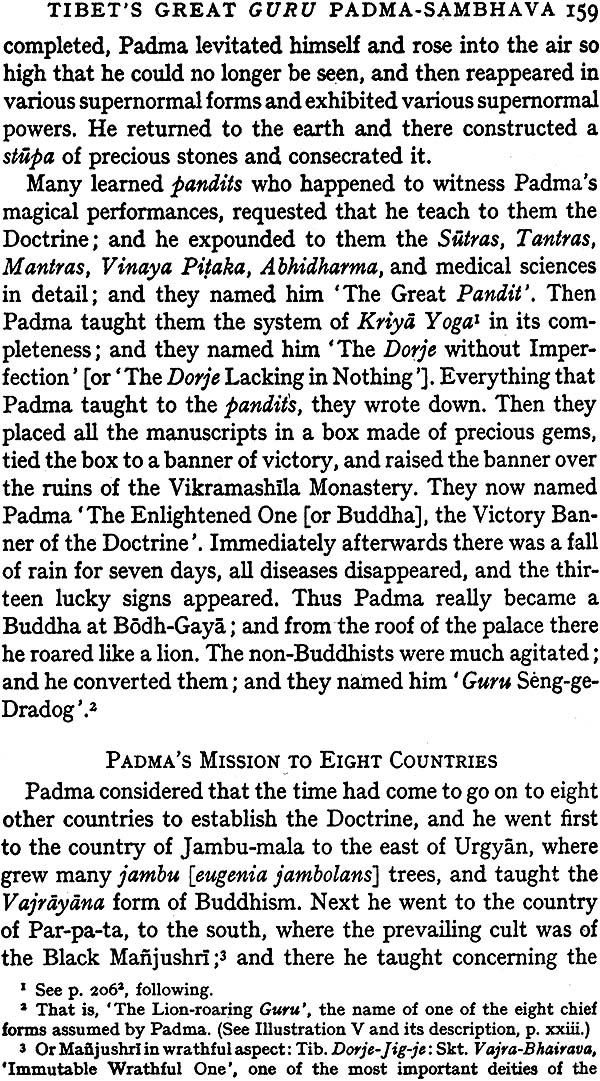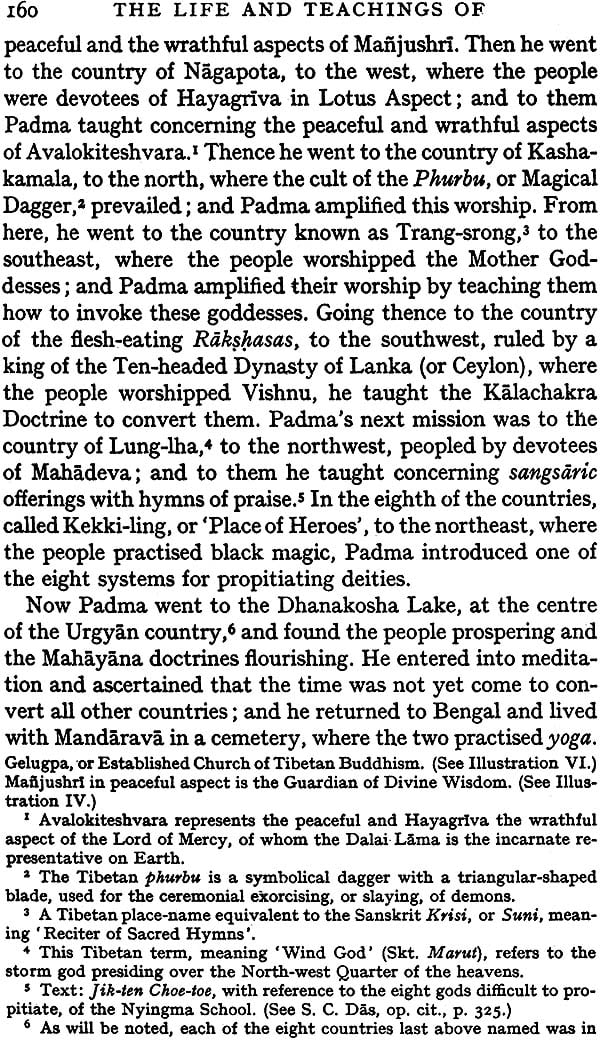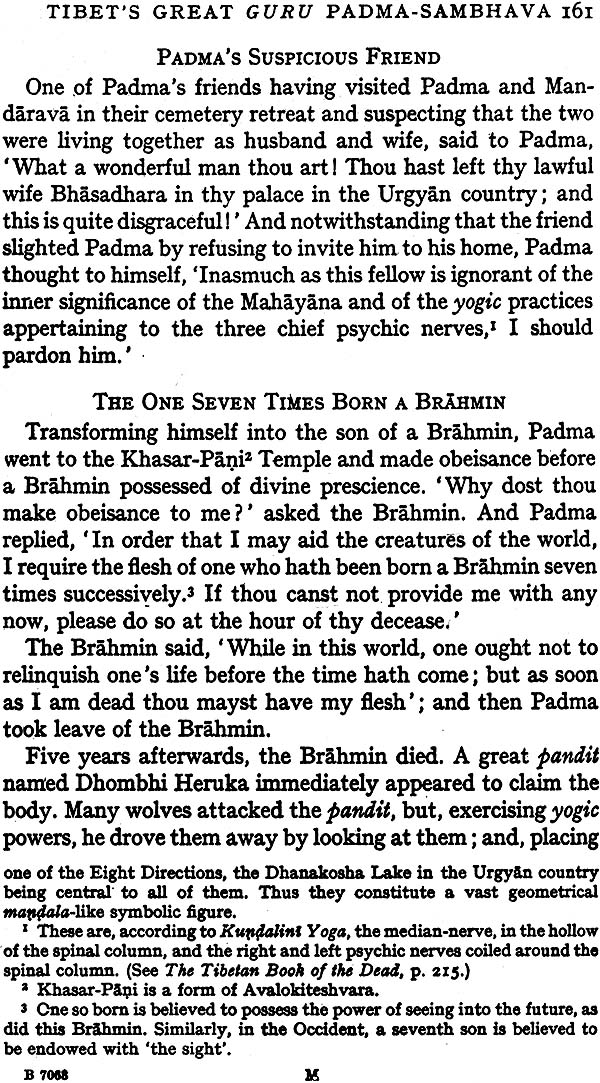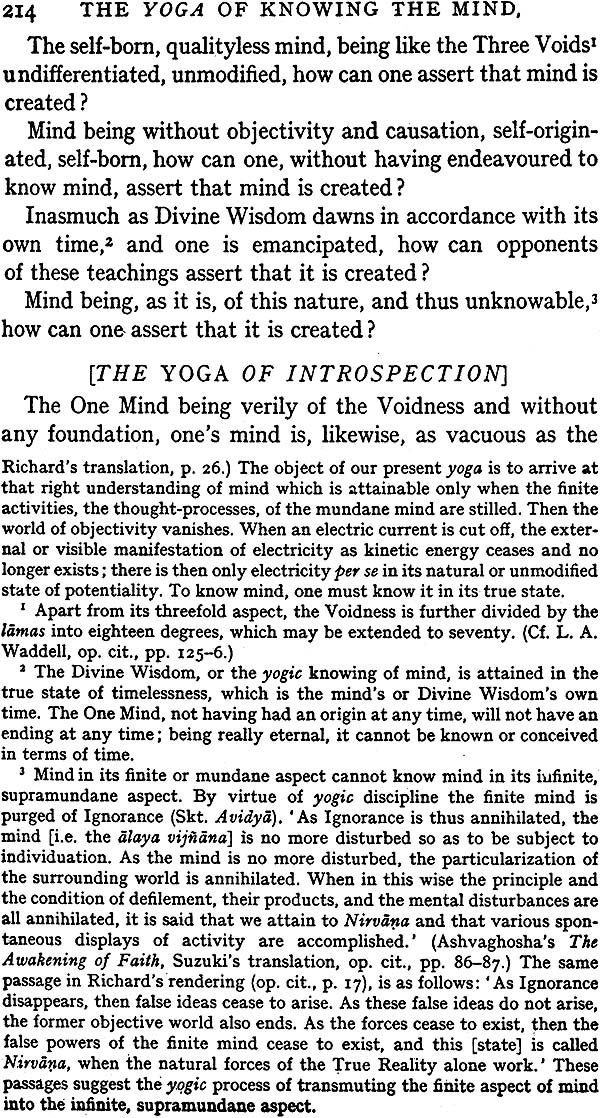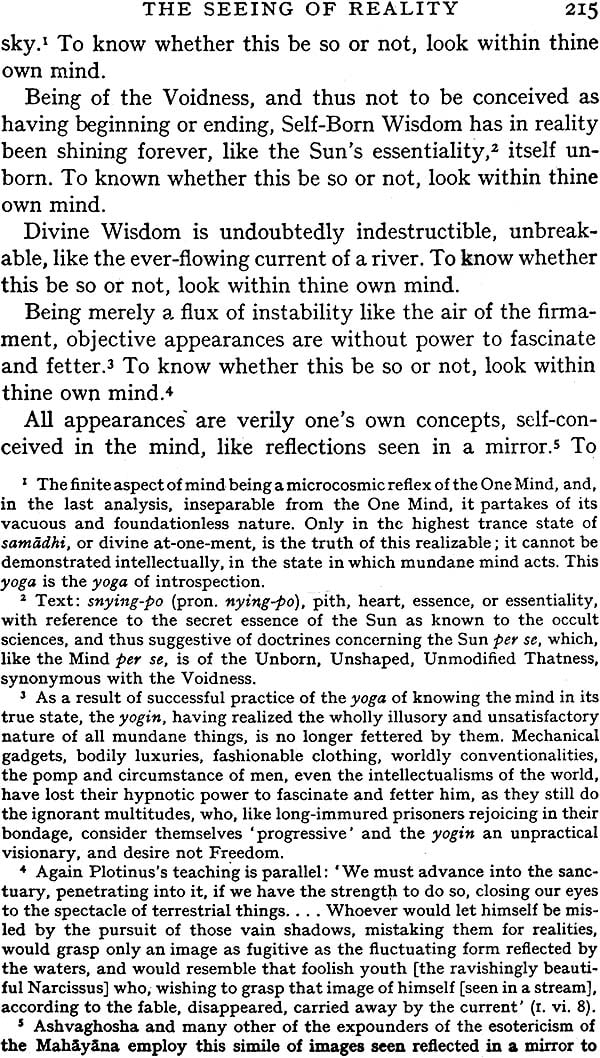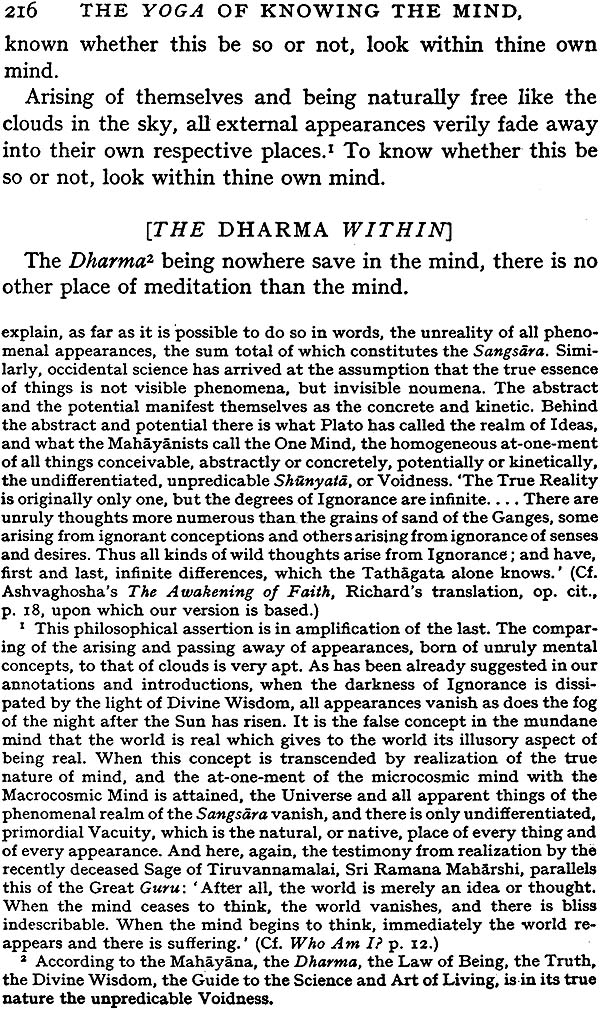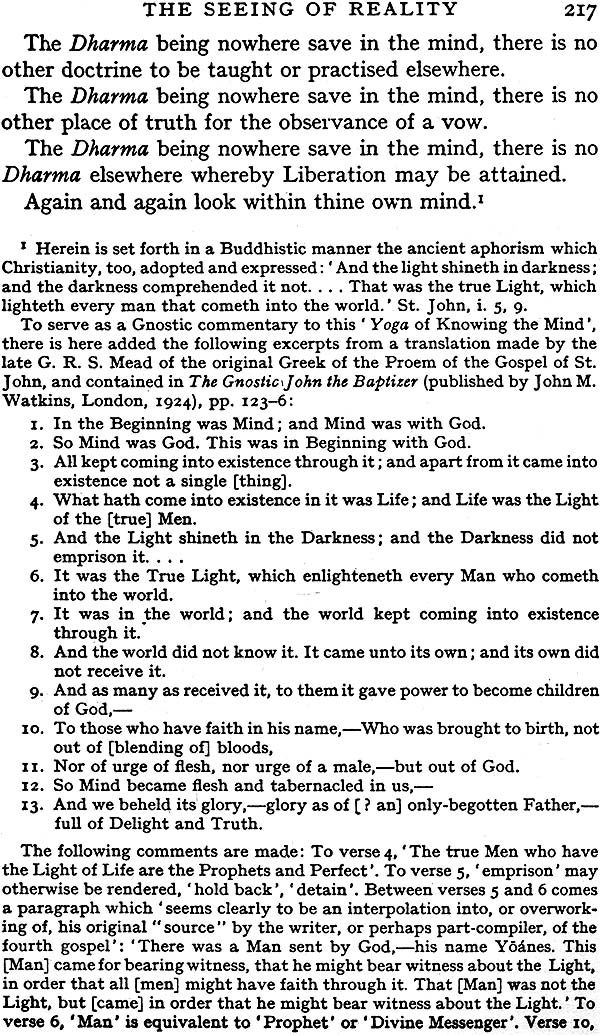
The Tibetan Book of The Great Liberation
Book Specification
| Item Code: | NAG241 |
| Author: | W.Y. Evans-Wentz |
| Publisher: | Winsome Books India |
| Language: | English |
| Edition: | 2004 |
| ISBN: | 9788178222493 |
| Pages: | 328 |
| Cover: | Paperback |
| Other Details | 8.5 inch X 5.5 inch |
| Weight | 360 gm |
Book Description
In this volume, the fourth of my Tibetan Series, I have placed on record, in a manner intended to appeal equally to the learned and to the unlearned, to the philosopher and to the scientist, some of the most recondite teachings of oriental Sages, in doing so, I have had the right guidance of an original text, heretofore unknown to Europe, the authorship of which is attributed to Tibet’s precious Guru Padma-Sambhava, the illustrious master of the Tantric Occult Sciences, of whose life-history an epitome is herein presented.
Inasmuch as this volume sets forth the very quintessence of the Great Path, the Mahayana, it not only supplements the three previous volumes, but is, in some respects, the most important member of the series. At the time of the publication of Tibetan yoga and Secret Doctrines, I did not, however, foresee that it was my destiny to be the transmitter of this additional volume.
In the general Introduction had the textual annotations there have been incorporated, to serve as a very necessary commentary, complementary teachings which were orally transmitted through a long line of Gurus of the Kargyutpa school to my own Tibetan Guru, of the late Lama Kazi Dawa Samdup. Also, in Book III, the teachings of the Guru Phadampa Sangay supplement those of the other Gurus.
Thanks to the kindly assistance of Lalma Karma Sumdhon Paul and ?Lama Lobzang Mingyur Dorje, the first two successors of the late Lalma Kazi Dawa-Samdup in the University of Calcutta, Book II, the essential part of this volume, has been rendered into English.
All who read this volume will join with me in offering homage to the Sardar Bahadur S.W.Laden ? La, whom I had the great joy of assisting, in my capacity as scribe and editor, when he translated the excerpts from the Lotus Borne One’s Biography, upon which the epitome of it, comprising Book I, is based.
I am especially grateful to Dr. C. G. Jung, the distinguish guished dean of western psychologists, for his erudite Foreword, which serves as a bridge between the best thought of Occident and Orient. Today, even more than in the days of the Greek philosophers, East and West not only are meeting, but are recognizing their inherent and inseparable oneness. Only the vulgar notice and advocate racial and religious differentiation. To the clear-seeing, Humanity is one Family, eternally transcending geographical demarcatuions, national limitations, and every fettering concept born of the unenlightened mind.
To the late Dr. R.R Marett, Rector of Exeter College, and formerly Reader in Social Anthropology in the University of Oxford, whose encouragement of my anthropological research is well known to readers of other books bearing my name, I am indebted for his having critically examined the matter herein contained before it took final shape. I owe a similar debt to Dr. F. W. Thomas, Emeritus Boden professor of Sanskrit in the University of Oxford, more particularly for his assistance with certain of the Tibetan transliterations and place-names; and to Mr. E.T. Sturdy, translator of the Narada Sutra, for his no less timely help with the Sanskrit transliterations. I am, also, very greatly indebted to Mr. R.F.C. Hull, translator of the forthcoming Collected Edition of the works of Dr. C.G. Jung , for having constructively read the proofs of this book as a whole.
My thanks are likewise due to each of the translators who in Germany and in France have made the results of my Tibetan studies available in their several languages. In this connxion I cannot omit the names of Madame Marguerite La Fuente, of paris, who, under the extreme stress of economic Laounsbery, author of Buddhist Meditation in the southern School and also President of Les Amis Du Boudhism, if Paris, who aided Madame La Fuente in the arduous task of making the translation.
I acknowledge, too, the encouragement and aid rendered by many other helpers, friends, and correspondents hailing from all the continents-who,, like myself, are earnestly striving to overthrow every barrier born of Ignorance that separates race from race, nation from nation, and religion from religion.
May this book afford added courage and strength to those many helpers and friends. May that Universal Good Will of the Great Teachers of wisdom, such as is herein set forth, speedily prevail, so that mankind may recognize their divine at-one-ment.
The paramount teachings of the most illustrious teachers of Tibet and India. Who have transmitted their teachings to the peoples of Occident, are the base of this book. In book, I, hereof, an account of the marvelous superhuman life and secret doctrines of the Great Guru Padmasambhava, who in the eighth century on an invitation of the Tibetan king, travelled to Tibet and converted Tibet into Tantric Buddhism. Book II expounds the quintessence of the Supreme Path, the Mahayana, and reveals the yogic method of attaining the Great Liberation of Nirvana by means of knowing the one mind, the cosmic All- consciousness, without recourse to the postures, breathings. And other techniques commonly associated with lower yogas. The aphorisms of Guru Phaldampa Sangay, comprising Book III are supplemented to Book II.
Dr. C.G. Jung, has contributed a lengthy psychological commentary. He analyses the difference between Eastern and Western thought-process, and suggests that the sages of the Orient appear to have recognized in their own peculiarly oriental manner the Unconscious in man long prior to its discovery by European psychologists.
| Preface | vii | |
| Description Of Illustrations | xv | |
| Foreword: A Psychological Commentary, by Dr. C. G. jung | xxix | |
| General Introduction | I | |
| I | Reality according to the Mahayana | I |
| II | Nirvana | 4 |
| III | Time and space | 7 |
| IV | The Nature of Mind | 9 |
| V | Individualized and Collective Mind | 12 |
| VI | Wisdom Versus Knowledge | 15 |
| VII | Illiteracy and Utilitarianism | 20 |
| VIII | The Great Guru | 25 |
| IX | Good and Evil | 35 |
| X | Tantric Buddhism | 58 |
| XI | Astrology | 63 |
| XII | The Yoga | 70 |
| XIII | The Problem of Self (or Soul) | 75 |
| XIV | The psychological and the Therapy | 78 |
| XV | Origin of the Text | 85 |
| XVI | The Translators | 86 |
| XVII | The Translating and Editing | 92 |
| XVIII | Englidhing | 95 |
| XIX | Criticism by Critics | 98 |
| XX | Conclusion | 99 |
| BOOK I | ||
| An Eptome of The Life And Teachings of Tibets Great Guru Padma-Sambhava | ||
| Introduction | 103 | |
| BOOK II | ||
| The Yoga of Knowing The Mind, The Seeing of Reality, Called Self-Liberation | 195 | |
| BOOK III | ||
| The Last Testamentary Teachings of The Guru Phadampa Sangay | ||
| I | Introduction | 241 |
| II | The Guru's Teachings | 243 |
| III | Concluding Thoughts: Power, Conquest, Security | 253 |
| Index | 255 |
